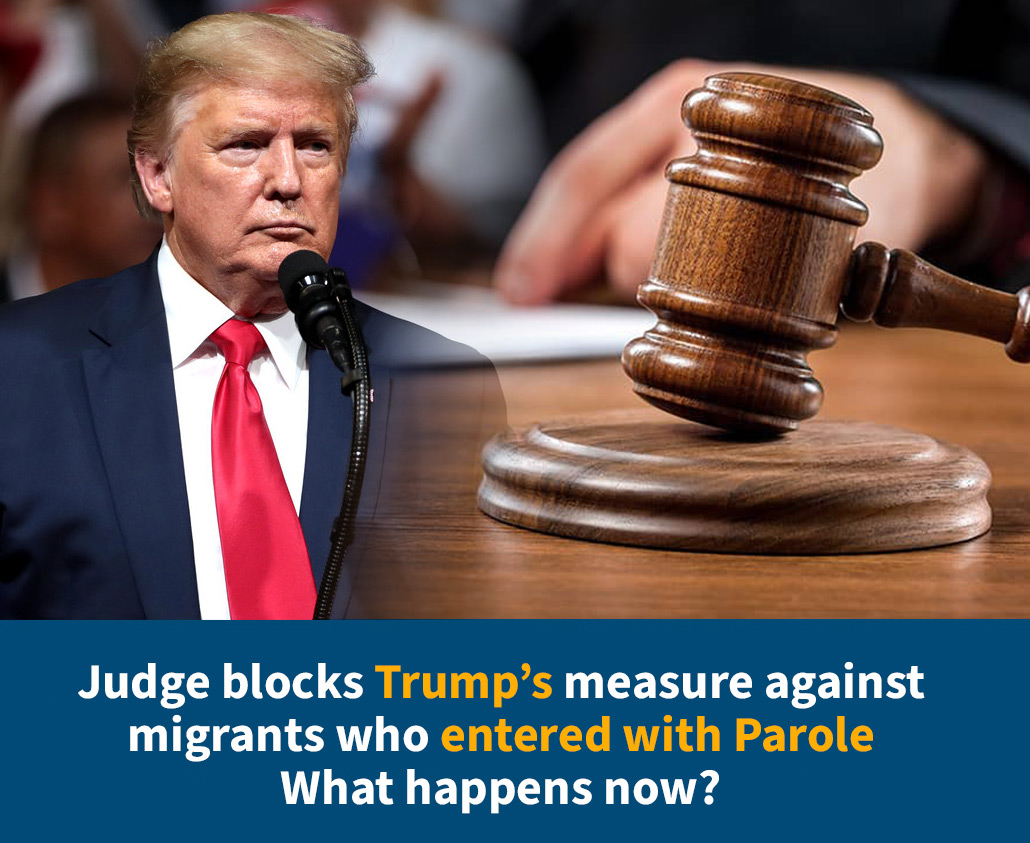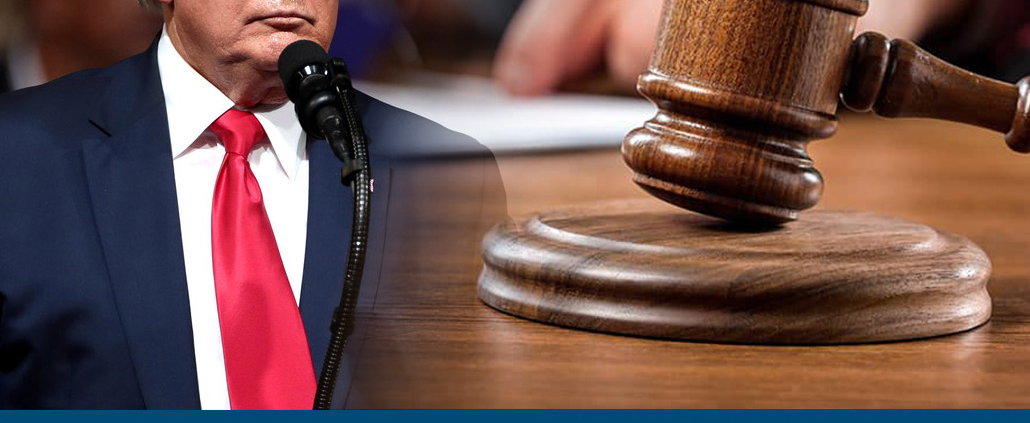Judge Blocks Trump’s Attempt to Revoke Legal Status from 530,000 Migrants: What Does This Mean?

A recent federal court decision has brought relief to over half a million migrants in the United States. A judge has temporarily blocked a measure pushed by President Donald Trump’s administration, which sought to eliminate the legal status of approximately 530,000 people who entered the country legally through a humanitarian program created by the previous Biden administration.
But, what does this decision really mean? Who are the affected individuals, and what should they do now? In this blog, we explain it in a clear and simple way.
What Is Biden’s Humanitarian Parole Program?
This program was created by the Biden administration to offer a safe and legal pathway to migrants from specific countries—particularly Cuba, Haiti, Nicaragua, and Venezuela—to enter the U.S.
Through the humanitarian parole program, migrants could fly directly into the United States and stay legally for up to two years, with work permits, without needing to cross the border irregularly.
More than 500,000 people were admitted under this program, complying with all legal requirements established by the government at the time.
What Did the Judge Decide?
In April 2025, a federal judge temporarily blocked President Trump’s administration from canceling this program and revoking the legal status of those who entered through it.
The court’s ruling states that removing a legally granted status without individualized review or due process may violate the fundamental rights of the beneficiaries.
This judicial measure is not final, but it represents an important pause to a policy that could affect thousands of families.
📌 Why Is This Decision Important?
- It protects acquired rights: Individuals who entered legally cannot be treated as if they broke the law.
- It gives families time to prepare: Affected individuals now have time to explore more stable legal options.
- It brings hope and clarity: When applied correctly, the law can also protect migrants.
What Risks Still Exist?
Although the decision halts the revocation for now, the risk remains. The current administration has made it clear that it seeks to restrict several immigration benefits.
That’s why it’s essential for people who arrived under humanitarian parole to:
- Evaluate other long-term legal options.
- Get professional legal advice as soon as possible.
- Don’t wait until your status is at risk to act.
How Can Inmigración Pro Help?
At Inmigración Pro, we understand how difficult it is to live in uncertainty—especially for those who came seeking a better future for their families.
Our team has helped hundreds of migrants protect their status and find new legal avenues to remain in the U.S.
If you or someone you know entered through the humanitarian parole program, now is the time to take action. We can help you:
✅ Evaluate whether you qualify for a different immigration status.
✅ Prepare your case ahead of time if a status change is needed.
✅ Keep your documentation up to date and in compliance.
📲 Contact us today for personalized, professional guidance.

Frequently Asked Questions:
Can I apply for another status while on parole?
Yes. Depending on your situation, options like asylum, family petitions, or employment-based paths may be available.
What happens if my permit expires and it’s not renewed?
You could fall out of legal status. It’s important to act before that happens.
Can I work with a parole permit?
Yes. Humanitarian parole allows you to apply for a valid work permit during your authorized stay.
📌 Share this information with your community.
Many people don’t know they can take action before it’s too late.








